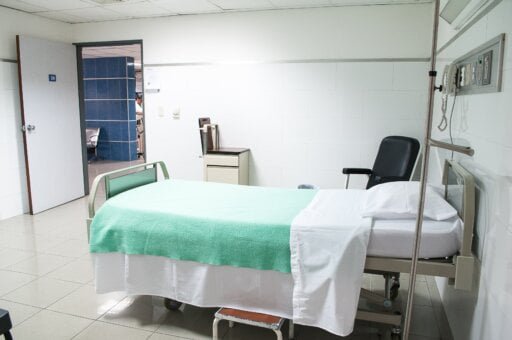Are you curious about the impact that anxiety can have on your blood pressure? Well, wonder no more! In this article “Will Anxiety Raise Blood Pressure”, we will explore the connection between anxiety and blood pressure and shed some light on whether anxiety can actually raise your blood pressure levels. So, sit back, relax, and let’s uncover the truth behind this common concern.
The Relationship Between Anxiety and Blood Pressure
Anxiety is a common emotional response that most people experience from time to time. It can be triggered by various situations or events, such as public speaking, job interviews, or financial difficulties. At its core, anxiety is the body’s natural response to stress. While feeling anxious is a normal part of life, it is essential to understand how anxiety can affect your overall health, including your blood pressure.
Blood pressure is a measure of the force exerted on the walls of your arteries as blood flows through them. It is an essential indicator of your cardiovascular health. High blood pressure, also known as hypertension, can lead to serious complications such as heart disease, stroke, and kidney problems. Understanding the relationship between anxiety and blood pressure is crucial for effectively managing both.
Understanding Anxiety
Anxiety is a complex psychological condition that involves feelings of fear, worry, and unease. When you experience anxiety, your body’s stress response is triggered. This response activates various physiological changes in your body, including an increase in heart rate and blood pressure. While this is a normal and temporary response, frequent or chronic anxiety can significantly impact your cardiovascular health.
Understanding Blood Pressure
Blood pressure is measured using two numbers: systolic pressure (the higher number) and diastolic pressure (the lower number). The systolic pressure represents the force when your heart is contracting, while the diastolic pressure represents the force when your heart is at rest between beats. Normal blood pressure is generally considered to be around 120/80 mmHg, with anything above that classified as high blood pressure.
The Effects of Anxiety on Blood Pressure
Stress Response and Blood Pressure
When you feel anxious, your body’s stress response system, also known as the fight-or-flight response, kicks in. As a result, the release of stress hormones, such as adrenaline and cortisol, causes your blood vessels to constrict and your heart rate to increase. These changes lead to a temporary rise in blood pressure, allowing your body to prepare for a perceived threat or danger. While this response is beneficial in the short term, prolonged or chronic anxiety can have detrimental effects on your cardiovascular system.
Acute vs. Chronic Anxiety
Acute anxiety refers to short-term and situational anxiety, which is typically triggered by a specific event or circumstance. In such cases, blood pressure often returns to normal once the anxiety-provoking situation has passed. However, chronic anxiety is characterized by ongoing feelings of unease and worry that persist for an extended period. Chronic anxiety can lead to consistently elevated blood pressure levels, which can increase the risk of developing hypertension and its associated health complications.
Severity of Anxiety Symptoms
The severity of anxiety symptoms can also influence the impact on blood pressure. Mild or occasional anxiety may have minimal effects on blood pressure, while severe or frequent anxiety can significantly elevate blood pressure levels. It is important to recognize and address the severity of your anxiety symptoms to better understand their potential effects on your blood pressure.
Individual Variation
It is essential to recognize that the relationship between anxiety and blood pressure can vary from person to person. While some individuals may experience a significant increase in blood pressure during periods of anxiety, others may not be as affected. It is vital to monitor your blood pressure regularly, especially during times of increased anxiety, to understand your individual response.
Interaction with Other Contributing Factors
Anxiety does not exist in isolation, and its effects on blood pressure can be influenced by other contributing factors. Lifestyle choices, such as diet, physical activity, alcohol intake, and smoking habits, can amplify the impact of anxiety on blood pressure. Therefore, it is crucial to consider these factors and make healthy choices to manage both anxiety and blood pressure effectively.

The Physiology Behind Anxiety-Induced Hypertension
Activation of the Sympathetic Nervous System
When anxiety triggers the fight-or-flight response, the sympathetic nervous system becomes activated. This leads to the release of stress hormones, specifically adrenaline and noradrenaline. These hormones increase blood flow to muscles while constricting blood vessels in other areas of the body, raising blood pressure as a result.
Release of Stress Hormones
The release of stress hormones, such as adrenaline and cortisol, plays a significant role in anxiety-induced hypertension. These hormones prepare the body for immediate action by increasing heart rate, constricting blood vessels, and enhancing fluid retention. These physiological changes collectively contribute to elevated blood pressure levels.
Vasoconstriction
Vasoconstriction is a natural response that occurs during anxiety. It refers to the narrowing of blood vessels, which increases resistance to blood flow, consequently raising blood pressure. The prolonged vasoconstriction associated with chronic anxiety can result in sustained high blood pressure levels.
Increased Heart Rate
Anxiety stimulates an increase in heart rate, which is part of the body’s stress response mechanism. As the heart beats faster, it pumps more blood, causing an elevation in blood pressure. This increase in heart rate is often temporary during acute anxiety but can become a chronic issue if anxiety persists.
Enhanced Fluid Retention
Stress hormones released during anxiety have the potential to increase fluid retention, leading to an increase in blood volume. As blood volume rises, so does blood pressure. This fluid retention can further exacerbate the impact of anxiety on blood pressure levels.
The Role of Lifestyle Factors
While anxiety can contribute to increased blood pressure, certain lifestyle factors can also play a significant role. Making healthy lifestyle choices can help manage anxiety and maintain blood pressure within a healthy range.
Poor Diet and Weight Gain
Consuming a diet high in processed foods, saturated fats, and sodium can contribute to weight gain and high blood pressure. Conversely, adopting a balanced diet rich in fruits, vegetables, whole grains, and lean proteins can support not only overall health but also reduce anxiety and promote cardiovascular well-being.
Lack of Physical Activity
Leading a sedentary lifestyle can be detrimental to your physical and mental health. Regular physical activity helps reduce anxiety, regulate blood pressure, and promote overall cardiovascular fitness. Engaging in activities such as walking, jogging, cycling, or swimming can significantly improve both anxiety levels and blood pressure readings.
Excessive Alcohol Intake
Excessive alcohol consumption can lead to an increase in blood pressure levels. It is important to consume alcohol in moderation or consider eliminating it altogether if anxiety and high blood pressure are concerns. Seeking healthier alternatives for stress relief, such as engaging in hobbies or practicing relaxation techniques, can benefit both your anxiety management and blood pressure control.
Smoking and Nicotine
Smoking and nicotine have a profound impact on cardiovascular health, including blood pressure. Nicotine causes an immediate spike in blood pressure due to its stimulant effects. Chronic smoking can lead to the development of hypertension and significantly increase the risk of heart disease. Quitting smoking is crucial for both anxiety management and blood pressure control.

Anxiety Management Techniques to Lower Blood Pressure
To effectively manage anxiety and lower blood pressure, implementing various anxiety management techniques can be beneficial.
Cognitive Behavioral Therapy (CBT)
Cognitive-behavioral therapy is a widely used and proven effective approach to managing anxiety. CBT helps individuals identify and change negative thought patterns and behaviors that contribute to anxiety. By addressing the underlying causes of anxiety, CBT can lead to significant improvement in both anxiety symptoms and blood pressure levels.
Relaxation Techniques
Engaging in relaxation techniques, such as deep breathing exercises, meditation, yoga, and progressive muscle relaxation, can help reduce anxiety and promote relaxation. These techniques activate the body’s natural relaxation response, leading to a decrease in heart rate, blood pressure, and overall feelings of stress.
Regular Exercise
Regular physical activity is a powerful tool for managing anxiety and maintaining optimal blood pressure levels. Exercise releases endorphins, which are known as “feel-good” hormones, promoting a sense of well-being and reducing anxiety. Aim for a minimum of 30 minutes of moderate-intensity exercise most days of the week to reap the benefits on both your mental and cardiovascular health.
Healthy Lifestyle Modifications
Making healthy lifestyle modifications can significantly impact both anxiety levels and blood pressure. Implementing stress management techniques, maintaining a balanced diet, staying hydrated, getting adequate sleep, and prioritizing self-care are all crucial for anxiety management and overall cardiovascular health.
The Importance of Seeking Professional Help
While adopting lifestyle changes and self-help strategies can often be effective in managing anxiety and blood pressure, it is important to seek professional help when necessary.
Consulting a Healthcare Provider
If anxiety is significantly impacting your daily life or if you are concerned about your blood pressure levels, it is essential to consult a healthcare provider. They can assess your symptoms, rule out any underlying medical conditions, and provide appropriate guidance and treatment options.
Considering Medical Interventions
In some cases, lifestyle changes and self-help strategies may not be sufficient to manage anxiety and blood pressure. Your healthcare provider may recommend medications or other medical interventions to help control anxiety and maintain healthy blood pressure levels. It is important to work closely with your healthcare provider to find the most appropriate treatment plan for your individual needs.

Conclusion: Will Anxiety Raise Blood Pressure
Understanding the relationship between anxiety and blood pressure is crucial for effectively managing both your mental and cardiovascular health. Anxiety can lead to short-term spikes in blood pressure, but chronic or severe anxiety can contribute to sustained hypertension. By addressing anxiety through various techniques such as therapy, relaxation exercises, regular exercise, and healthy lifestyle modifications, you can help lower your blood pressure and improve your overall well-being. Remember, seeking professional help and guidance is always important when dealing with anxiety and blood pressure concerns. With the right support and proactive approach, you can successfully manage anxiety and maintain a healthy blood pressure balance.
Frequently Asked Questions:
- How much can anxiety affect blood pressure? Anxiety can have a significant, temporary impact on blood pressure. Managing anxiety through relaxation techniques is crucial for maintaining cardiovascular health.
- How much does stress raise blood pressure? Stress can cause a temporary spike in blood pressure. Adopting stress-management techniques is important for preventing prolonged elevations.
- How can I stop worrying about my blood pressure? Regular monitoring is essential, but excessive worry can contribute to elevated blood pressure. Practice stress-reduction techniques and maintain open communication with your healthcare provider.
- How do you relax for a blood pressure test? Relaxing before a blood pressure test involves taking slow, deep breaths and focusing on calming thoughts. Avoid caffeine and engage in relaxation exercises to promote an accurate reading.
- Is 160 over 90 high blood pressure? A blood pressure reading of 160/90 is considered high. Consult with your healthcare provider to discuss management strategies and lifestyle changes.
- Can anxiety raise blood pressure to 200? While anxiety can cause a temporary spike, reaching 200 is uncommon. Persistent or severe elevations require prompt medical attention.
- Can obsessing over blood pressure raise it? Obsessing over blood pressure may contribute to stress, potentially causing a temporary elevation. Adopting a balanced approach and seeking professional guidance is important.
- Is temporary high blood pressure OK? Temporary elevations in blood pressure can occur due to various factors. While occasional spikes may not be alarming, persistent or severe elevations should be addressed with a healthcare provider.
- Can anxiety cause false blood pressure readings? Extreme anxiety may temporarily raise blood pressure, leading to false high readings. It’s important to measure blood pressure under calm conditions for accuracy.
- Does anxiety raise systolic or diastolic BP? Anxiety can affect both systolic and diastolic blood pressure. It often leads to a general increase in overall blood pressure.
- Can walking 10,000 steps a day lower blood pressure? Regular physical activity, such as walking, can contribute to lower blood pressure. However, individual responses vary, and it’s essential to maintain a comprehensive approach to cardiovascular health.
- Does drinking water lower blood pressure? Staying hydrated is important for overall health, but the direct impact of water intake on blood pressure is limited. Healthy lifestyle choices play a more significant role in blood pressure management.
- Does walking lower blood pressure? Regular walking and physical activity contribute to lower blood pressure. Incorporating exercise into your routine is beneficial for cardiovascular health.
- Will my blood pressure go down if I relax? Yes, relaxation techniques such as deep breathing and mindfulness can help lower blood pressure by reducing stress and promoting overall calmness.
- When not to take blood pressure? Avoid taking blood pressure readings immediately after strenuous exercise, consuming caffeine, or during periods of high stress. Taking measurements in a calm state provides more accurate results.
- Do most people with anxiety have high blood pressure? While anxiety can elevate blood pressure temporarily, not everyone with anxiety has consistently high blood pressure. Individual responses vary.
- Why would blood pressure suddenly spike? Blood pressure can spike due to stress, anxiety, excessive caffeine intake, or underlying health conditions. If sudden spikes persist, consult with a healthcare provider for evaluation.
- Can anxiety cause high blood pressure at the doctor’s? Yes, anxiety at the doctor’s office, known as “white coat syndrome,” can lead to temporarily elevated blood pressure readings. Discuss any concerns with your healthcare provider.
- What is an alarming diastolic number? An alarming diastolic number is typically 90 mm Hg or higher. Consult with your healthcare provider to discuss management strategies for elevated diastolic blood pressure.
- What is the highest blood pressure ever recorded? The highest recorded blood pressure was 370/360 mm Hg. Such extreme readings are rare, and sustained elevations at this level can be life-threatening.
- Which BP number is affected by anxiety? Both systolic and diastolic blood pressure can be affected by anxiety. Anxiety often leads to a temporary increase in overall blood pressure.
- What to do when BP is 150/100? A blood pressure reading of 150/100 is considered high. Consult with your healthcare provider for personalized advice on lifestyle changes and potential medication to manage hypertension.
- Why is my diastolic 90? A diastolic reading of 90 mm Hg is considered high. Consult with your healthcare provider to determine the underlying causes and develop a plan for managing elevated diastolic blood pressure.
- Can lack of sleep cause high blood pressure? Chronic lack of sleep can contribute to elevated blood pressure. Prioritizing good sleep hygiene is essential for overall cardiovascular health.
- How do you feel when you have high blood pressure? High blood pressure often has no noticeable symptoms. Regular monitoring and healthcare check-ups are crucial for identifying and managing hypertension.
Source: Anxiety
